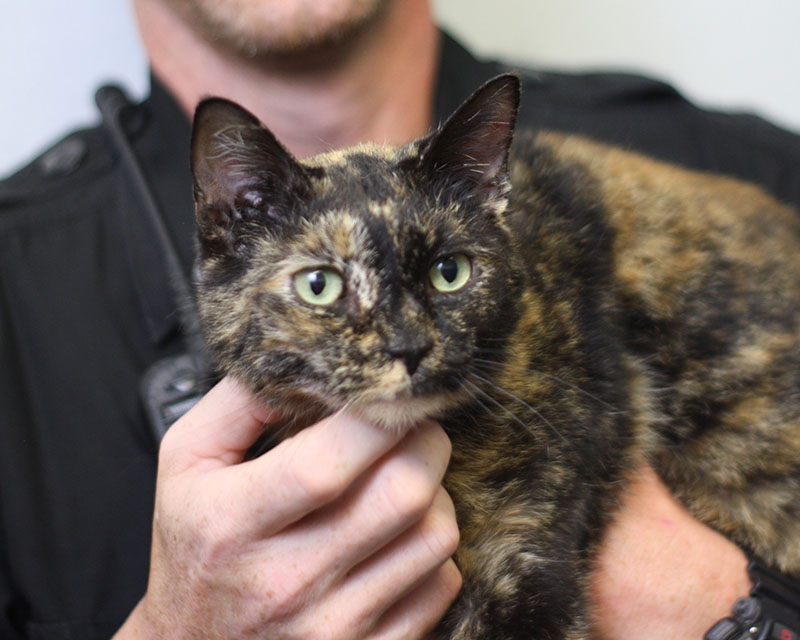
[embedded content]
Traditionally, field services or animal control roles have been dedicated to enforcement: impounding animals, tackling cruelty and neglect, getting unsafe animals off the streets, and issuing citations to people violating animal statutes. Field services roles are changing, expanding into community-centered practices to support people and pets through community outreach, supplies and food, helping pet owners access vet care, and getting lost pets home. What can these changes mean for your organization and community? Tune into this webinar recording with experts Dr. Josh Fisher, Director of Charlotte-Mecklenburg Animal Care and Control and Board President for the National Animal Care and Control Association (NACA); Mike Wheeler, Director of Community Services for the City of Cabot and NACA Board Member; and Scott Giacoppo, Director of National Shelter Support for Best Friends Animal Society, for insights into the transformation of field services. Vincent Medley, Maddie’s® Director of Human Animal Support Services moderates.
Questions from the Audience
What are your thoughts on Owner Surrenders in the field by ACO?
Vincent Medley: Officers often offer owner surrender as an option to immediately resolve a nuisance or other law violation. This rarely if ever addresses the underlying resource issue that would resolve the violation and keep the pet with their family. Providing officers with programs and other problem solving authority that keeps the pet with their family is the best pathway to lasting change.
Mike Wheeler: I have never been a fan of “owner surrenders” in the field. This puts another layer of responsibility on officers and expectations from the public; while never addressing the issues that caused the dispatch in the first place. Data shows that when a dog is removed from someone’s possession, either “owner surrender” or “seized”, within 3 months they have gotten another animal. Officers in the field who are empowered to help people, through community programs, find that keeping the animal with the family is typically the best solution.
What suggestions does the panel have for open admission shelters who are contracted to shelter pets only while animal control is run by deputies and/or city employees who believe that their role is to bring in animals and not to return pets in the field? How do you change their measurement of success from the outside?
Mike Wheeler: This is a tough situation and is not one that has an instant fix. There is always the option of building in limitations and requirements of the ACOs into the contract. Understanding that this might be a point of contention I would play the long game and slowly integrate them into our facility. What I mean by that is offering training for their officers on animal care, animal handling, customer service, etc. The more you can get their officers inside your location and interacting with your team the better for everyone involved. I find that most police/sheriff departments are eager for their people to receive training – especially if it’s free.
Do you guys have that same viewpoint for cock fighting?
Vincent Medley: Because the fate of roosters are often governed by the state Agricultural Department, some of the considerations for them are different than those for a pitbull. So often seizures involve dozens, if not hundreds of birds, finding placement is difficult and often unsuccessful. That being said, lifesaving should always be the first instinct.
Do you find there is a need to provide behavior support/advice when working within communities? Are there ways for trainers/behavior professionals to get involved?
Vincent Medley: In many communities, behavior is a common reason for families surrendering their pet and is also a source of nuisance complaints. Community based behavior support programs are definitely needed in all these communities.
Mike Wheeler: As Vincent has said, one of the main reasons for owner surrenders and returns is “behavior” issues. So building relationships with trainers/behavior professionals can be extremely beneficial. With that always comes the question of who pays for the sessions, especially in our communities where paying for this would be considered a luxury and not a necessity. Many trainers will offer weekly and monthly “meet ups” at dog parks, city parks, animal shelters, etc and these are introductory lessons that are free of charge. A lot can be learned from these sessions. I would also recommend you work with a trainer and ask them to donate 1,2,5,8 training sessions a month to your organization that you can repurpose for those animals in your community that need the sessions more than you do. Trainers will do this for a couple of reasons: the tax write-off, but more importantly for the free publicity you are going to give them for their donation.
Source: Human Animal Support Services












